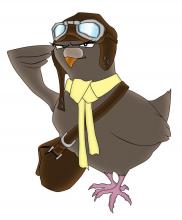 Like all languages, Konkani has its own peculiarities.
Like all languages, Konkani has its own peculiarities.
One of its characteristics concerns the genders attributed to people and things, and the genders of the pronouns and adjectives that bear reference to those objects.
Genderly speaking, the English language is perhaps the most down to earth and matter-of-fact. People have their sexes, it seems to suggest, and animals also do, but how can things be considered as male or female? What sex qualities do inanimate objects possess? You don’t think of a table or a chair or a computer as a male or a female, do you? In other words, except for a few pronouns, the English language is almost totally impervious to genders. Read more




